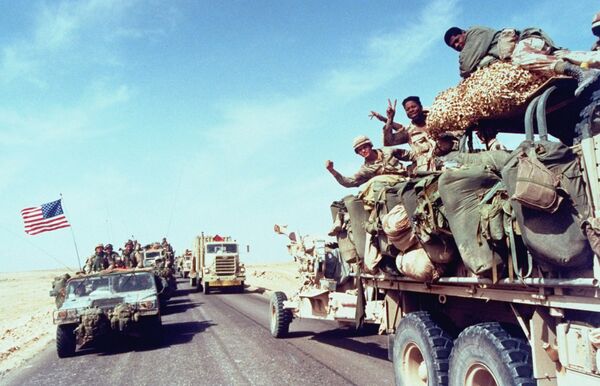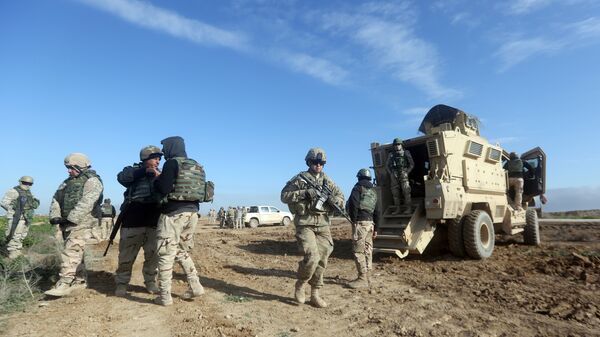The Trump administration has threatened Iraq that it would sever Baghdad's access to its key account at the Federal Reserve Bank in New York if the country expels US troops, as the Wall Street Journal reported Saturday, citing Iraqi officials.
Following the targeted drone assassination of Iranian Quds Force Commander Qasem Soleimani and Abu Mahdi al-Muhandis, deputy commander of the Popular Mobilisation Forces, near Baghdad airport on 3 January the Iraqi parliament voted in favour of expelling US forces from the country. In response to the Iraqi parliament's move, Donald Trump dropped a hint that he would slap severe sanctions on Baghdad.
Iraq's outgoing Prime Minister Adel Abdul-Mahdi said on 7 January that American troops should leave the country to avoid a further escalation of tensions between Tehran and Washington.
"In the case of Iraq, the threat to terminate their central banking account at the Federal Reserve Bank in New York unless the American military presence is maintained is a clear threat to the existence of Iraq as an independent, sovereign nation state, as in the case of the NATO invasion of Libya and extra-judicial assassination of [Muammar] Gaddafi", says Mark Dankof, a US radio broadcaster and investigative journalist.
According to Dankof, the US' threat matches Washington's use of force in Iran, Afghanistan, Libya, and Syria.
Iraq has long been in Washington's crosshairs, says the media pundit, recalling that US Operation Desert Storm in 1991 – the 42-day US-led air operation in response to Saddam Hussein's invasion of Kuwait – resulted in a catastrophe for everyone concerned.

The Bush administration invaded Iraq and toppled its government in 2003 under the false pretext of Baghdad's alleged involvement in the development of weapons of mass destruction (WMD).
The journalist notes that the ultimatum issued to Iraq on its central banking account in New York at the Fed, and the murder of Soleimani should be put "into proper context": any country which has an American military presence in it, or which relies on the continued maintenance of the American dollar as the reserve currency of the world risks either being subjected to external pressure from Washington or being subverted from within.
According to him, the events since the 1991 Operation Desert Storm underline: who and what is behind the foreign policy of the United States; that the implementation of these policies is through the destruction of nation-states by economic, cultural, and political subversion along with military coercion and occupation whenever deemed necessary; the threat to the sovereign nation-states of the world is also aimed at American dissidents at home on the left, and especially at the American nationalist right which desires a Republic not an Empire.
"[Middle East] wars have cost Americans $6.4 trillion since 2001", Dankof claims. "Estimates of the dead range from 800,000 to one million. And the metre is still running".
US-Iraq tensions have been increasing for quite a while reaching their peak on 31 December, when Iraqis stormed the building of the American embassy in Baghdad in response to US airstrikes targeting weapons depots and command and control facilities of the Iraqi Shia militia Kataib Hezbollah in Iraq and Syria on 29 December. The US strikes came on the heels of the 2019 K-1 Air Base attack, attributed to the Iraqi militia, that killed an American civilian contractor and injured four US and two Iraqi security service personnel.


